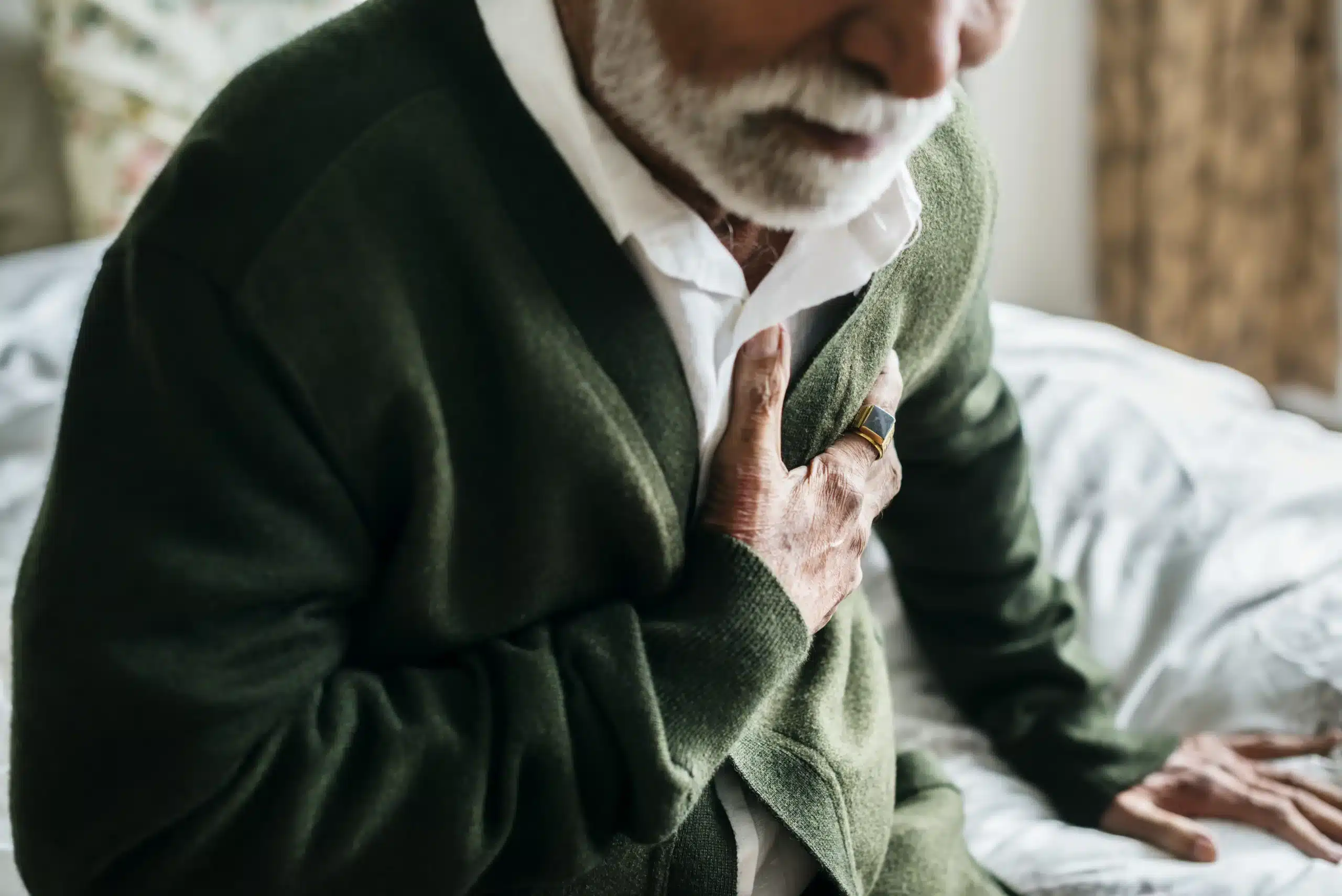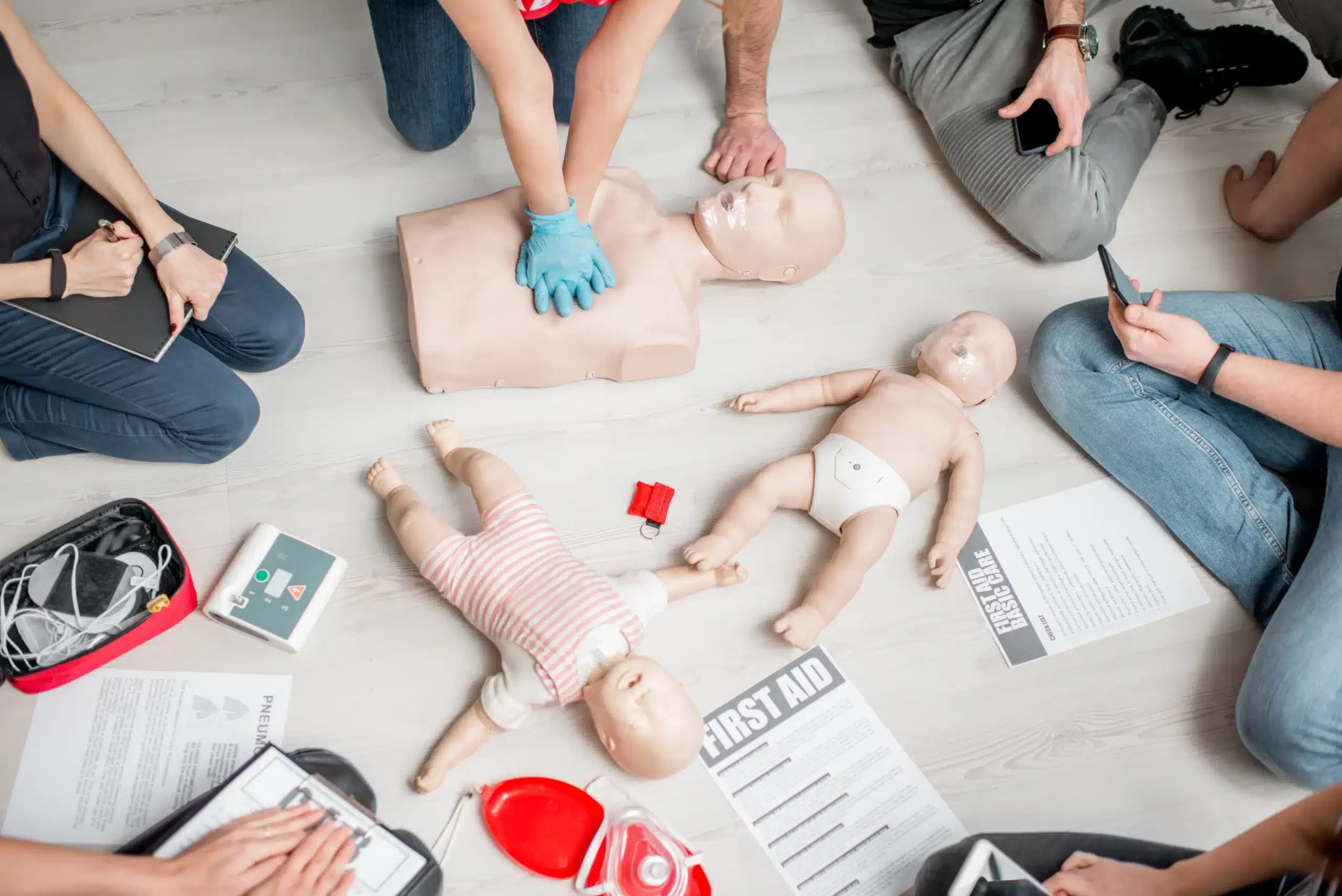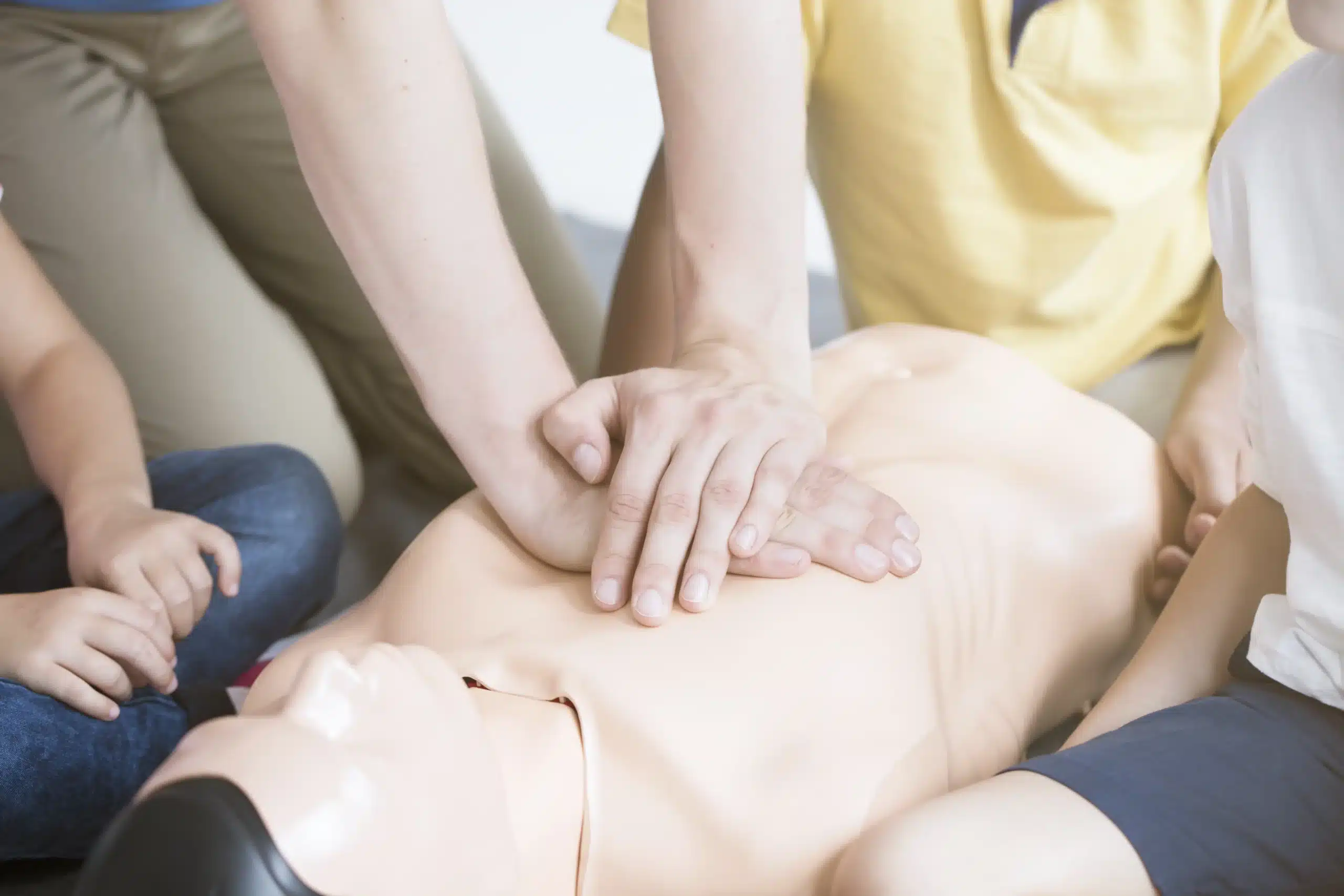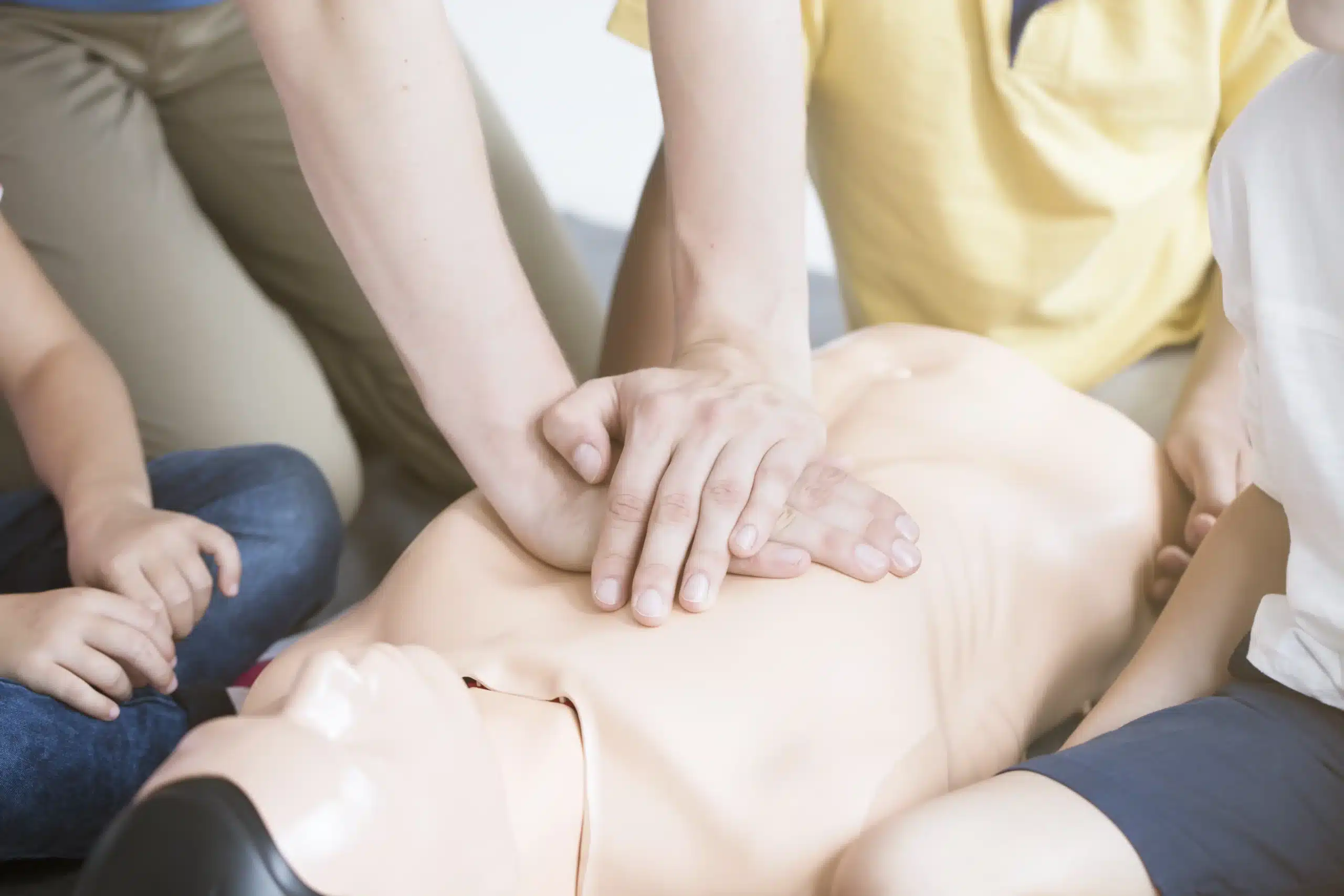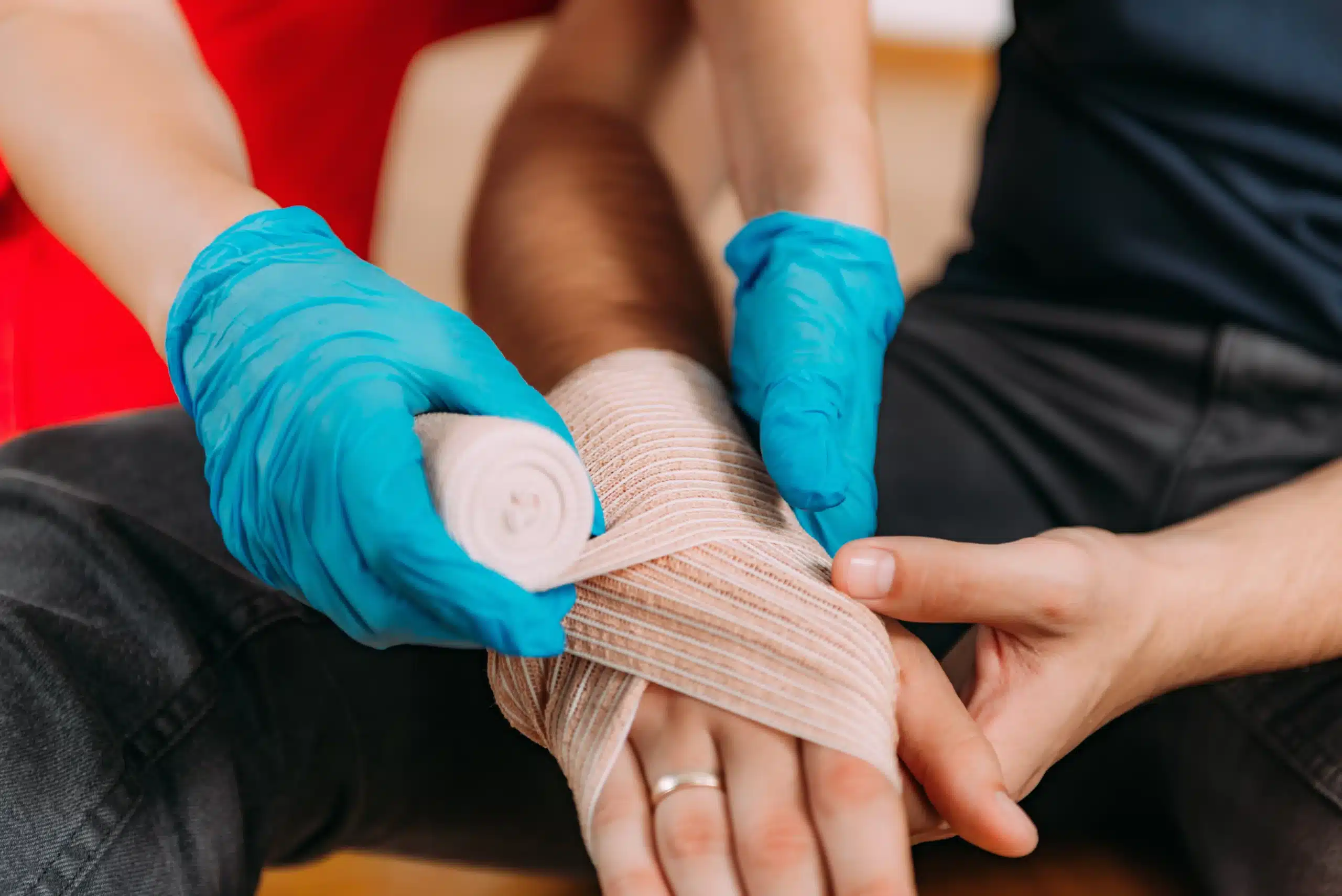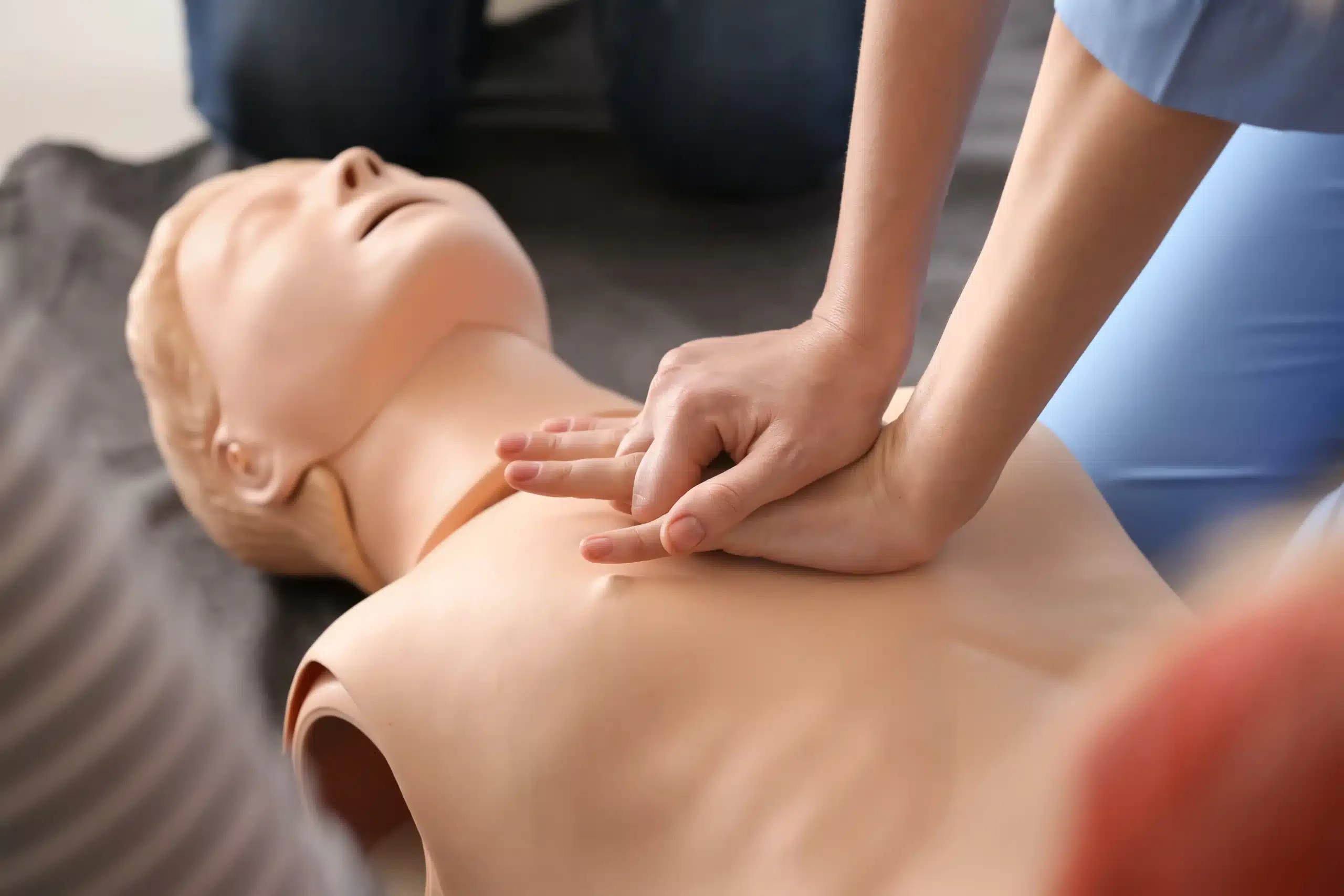Are you a healthcare provider in San Jose looking to enhance your skills and advance your career? Advanced Cardiac Life Support (ACLS) certification is a crucial credential for any healthcare professional who may encounter cardiovascular emergencies. This article serves as your complete guide to advanced cardiac life support in San Jose. We’ll explore the core components of ACLS training, the benefits of becoming certified, and the various training options available in San Jose, including in-person, online, and blended learning formats. We’ll also discuss the importance of staying updated on the latest guidelines and provide resources for ongoing practice and skill development.
Key Takeaways
- ACLS is essential for healthcare providers: It provides the skills to effectively manage cardiac emergencies, directly impacting patient outcomes and improving the quality of care. This training covers a range of skills, from recognizing heart rhythms to administering emergency medications.
- Preparation and practice are key for success: Completing pre-course work, practicing with simulations, and regularly reviewing updated guidelines are crucial for mastering ACLS skills and maintaining proficiency. This ongoing effort ensures you’re prepared for real-world scenarios.
- Certification advances your career and builds confidence: ACLS certification demonstrates a commitment to excellence in patient care, creating opportunities for career growth and instilling confidence in managing high-pressure situations. This translates to better patient care and greater professional opportunities.
What is Advanced Cardiac Life Support (ACLS)?
What is ACLS and why is it important?
Advanced Cardiovascular Life Support (ACLS) is specialized training designed to equip healthcare professionals with the skills to handle cardiopulmonary emergencies. It’s not just about theoretical knowledge; ACLS courses incorporate realistic scenarios, including simulations, to prepare you for the intensity and complexities of real-world emergencies. This hands-on approach ensures you can apply your knowledge effectively under pressure. These skills are vital for improving patient outcomes during serious cardiovascular events. ACLS emphasizes a team-based approach, teaching healthcare providers how to work together seamlessly and efficiently during these critical situations.
Who needs ACLS certification?
ACLS certification is essential for any healthcare provider who might respond to a cardiac emergency. This includes doctors, nurses, paramedics, respiratory therapists, and other specialized healthcare professionals. ACLS training provides the knowledge and practice you need to confidently manage these high-stakes situations, whether you’re a seasoned clinician or just starting your career. If you’re in the San Jose area, including Los Gatos and Saratoga, and are looking to get ACLS certified or recertified, check out the courses offered by Los Gatos CPR Classes. We offer programs for various experience levels. Contact us if you have questions about which course is right for you.
Key ACLS Skills
Recognize and Manage Cardiac Emergencies
ACLS training equips healthcare providers with the skills to quickly identify and respond to life-threatening cardiac events like heart attacks, strokes, and cardiac arrest. Rapid assessment and decisive action are crucial. Managing these emergencies effectively, as covered in ACLS certification classes, directly impacts patient outcomes and improves the quality of care within the community.
Perform High-Quality CPR and Defibrillation
High-quality CPR, including effective chest compressions and rescue breaths, is fundamental to ACLS. The training stresses proper technique and minimizing interruptions. Providers also learn to use a defibrillator safely and effectively to restore normal heart rhythms. Mastering these skills is vital for increasing survival rates during cardiac arrest. Learn more about avoiding common ACLS mistakes.
Manage Airways and Ventilation
Maintaining a clear airway and providing adequate ventilation are critical components of ACLS. Providers learn techniques for opening the airway, using airway devices, and providing bag-mask ventilation. They also learn to recognize and manage related complications. Proper airway management ensures oxygen reaches the patient’s lungs and vital organs. Review additional ACLS training resources to understand the importance of these skills.
Administer Emergency Medications
ACLS training covers the various medications used in cardiac emergencies, including dosages, administration routes, and potential side effects. Knowing which medication to use and when is crucial for stabilizing a patient. This includes medications for managing heart rate, blood pressure, and other vital signs. Timely medication administration is a cornerstone of effective ACLS intervention.
Interpret ECG Rhythms and Dysrhythmias
Interpreting electrocardiograms (ECGs) is a core ACLS skill. Providers learn to identify different heart rhythms and dysrhythmias to determine the appropriate treatment. Accurate ECG interpretation allows for quick, informed decisions during cardiac emergencies and is essential for applying the correct ACLS algorithms and protocols.
Communicate Effectively in a Team
ACLS emphasizes teamwork and communication during cardiac emergencies. Providers learn to communicate effectively with other resuscitation team members, including nurses, paramedics, and physicians. Clear communication ensures everyone works together toward a common goal. Effective team communication improves the efficiency and effectiveness of resuscitation efforts. This involves clear language, closed-loop communication, and defined roles and responsibilities.
Get ACLS Certified in San Jose
Getting your ACLS certification shows you’re dedicated to providing excellent patient care. Here’s what you need to know about getting ACLS certified in San Jose:
Prerequisites and materials
Before enrolling in an ACLS course, complete the required pre-course work from the American Heart Association (AHA) and bring your completion certificate to class. You’ll also need the ACLS Provider Manual, available as an eBook for $29.99 through our training center.
Course structure and duration
Our ACLS classes are six hours long and include hands-on training. You’ll participate in a skills test with a voice-activated mannequin. This test is self-directed, but your instructor is available by phone if you need assistance.
Certification and renewal
You’ll receive your ACLS certification the same day you complete the course, valid for two years. Renewing your certification keeps you current on the latest ACLS advancements so you can confidently respond to cardiac emergencies. Contact us to learn more about recertification.
Top San Jose ACLS Providers
Finding the right ACLS course is crucial for your success. Here are a few reputable providers in the San Jose area:
Los Gatos CPR Classes
Los Gatos CPR Classes offers American Heart Association ACLS classes and emphasizes the use of simulation technology to create a realistic learning environment. This hands-on approach helps students develop the critical thinking and practical skills necessary to manage complex cardiac emergencies. They serve Los Gatos, San Jose, and Saratoga. For those seeking a local and immersive learning experience, Los Gatos CPR Classes is a strong option. You can learn more about their CPR and First-Aid courses as well.
CPR Training Center
The CPR Training Center focuses on hands-on learning and provides same-day ACLS certification. Customer reviews frequently praise the quality of instruction and the supportive learning environment. This provider is a popular choice for those seeking efficient and effective training.
Safety Training Seminars
Safety Training Seminars offers AHA-certified CPR, ACLS, and PALS classes in San Jose. They offer courses for both individuals and groups, with discounts available for group registrations. Providing certification on the same day as the skills test makes this a convenient option for busy professionals.
Bay Area CPR
Bay Area CPR provides comprehensive BLS, ACLS, PALS, and First-aid training. They emphasize the importance of these skills for both individual well-being and community safety. This broader approach to safety training may appeal to those looking to expand their skill set beyond ACLS. If you’re interested in exploring other essential life-saving skills, consider checking out their offerings.
ACLS Certification Costs & Formats in San Jose
If you’re a healthcare provider in San Jose seeking ACLS certification, understanding the costs and available formats is essential. Let’s break down what you can expect.
Average costs and influencing factors
ACLS certification classes in San Jose typically range from $142.50 to $190. Several factors influence this price range. The training center’s reputation, instructor experience, and the comprehensiveness of the course materials all play a role. Established providers with experienced instructors often command higher prices, reflecting the quality of instruction and resources. For those seeking a low-price guarantee, consider checking out Los Gatos CPR Classes.
In-person, online, and blended learning
You have several options for obtaining your ACLS certification. Many providers offer traditional in-person classes, emphasizing hands-on learning and often providing same-day certification. If you prefer a more flexible approach, consider a blended learning format. This typically involves completing online coursework at your own pace, followed by an in-person skills session to practice essential techniques. This hybrid approach combines the convenience of online learning with the crucial hands-on experience needed for real-world scenarios. For a convenient option that offers various courses, including ACLS, across multiple locations in San Jose, check out Safety Training Seminars. The RQI program is another efficient option for healthcare professionals to maintain their certifications.
Discounts and offers
Looking to save on ACLS certification? Many training centers offer discounts, especially for group registrations. For example, some providers offer a 20% discount for groups of 2–5 people using a specific discount code, and even larger discounts may be available on select dates. Check with your chosen provider for current offers and see if registering with colleagues can help reduce the overall cost. Los Gatos CPR Classes also offers group discounts, making it a worthwhile option to explore. Don’t hesitate to contact the training center directly—they’re often happy to work with you to find the best solution for your needs and budget.
Prepare for Your ACLS Class
Getting ready for your ACLS class involves more than just signing up. Proper preparation can significantly impact your success. This section covers key steps to take before your class to ensure you’re ready to learn and master these lifesaving skills.
Pre-course study recommendations
The American Heart Association (AHA) provides online pre-course materials that are essential to review before your ACLS class. Make sure you complete these online materials and bring your completion certificate on the first day. This groundwork will give you a foundational understanding of the core concepts and allow you to focus on practical application during the in-person training.
Tips for training success
One of the most effective ways to prepare is by watching the pre-course videos. Studies show that students who watch the videos increase their chances of passing the skills test. Reviewing the ACLS guidelines and algorithms beforehand will also help you absorb the information presented in class more efficiently. Consider this your study guide for maximizing your learning.
Hands-on practice and simulations
ACLS training isn’t just about memorizing facts. It’s about applying knowledge in realistic emergency scenarios. The course incorporates simulations and hands-on practice to prepare you for the dynamic nature of real-world cardiac events. This practical experience is invaluable for building confidence and proficiency in performing ACLS interventions. Understanding how ACLS training translates to real-life situations can help solidify the importance of the skills you’re learning. Explore additional resources on how ACLS training saves lives through real-world application.
Overcome ACLS Certification Challenges
Becoming ACLS certified is a rewarding but demanding process. These tips can help you succeed, even with a busy schedule.
Manage time effectively
Time management is essential in high-pressure ACLS scenarios. During your training, practice prioritizing tasks and making quick decisions. This will build the skills you need to provide effective patient care. One helpful strategy is to break down complex procedures into smaller, manageable steps. This approach improves efficiency and reduces the chance of errors during real-life emergencies. For more practical strategies you can use every day, explore these resources on effective time management.
Communicate effectively in teams
Clear communication is crucial for successful teamwork during ACLS situations. Miscommunication can lead to errors and negatively impact patient outcomes. Practice communicating clearly and concisely with your team members during training scenarios. Use closed-loop communication, where you confirm that instructions have been understood and acted upon. Strong communication skills are valuable in any healthcare setting, and ACLS training provides a safe environment to hone these skills.
Stay updated on guidelines
Staying current with the latest ACLS guidelines from the American Heart Association is vital for any healthcare provider involved in emergency care. Regularly review updated algorithms and best practices to ensure you’re providing the most effective care. Subscribe to AHA email updates or follow them on social media to stay informed about any changes. Consider taking refresher courses periodically to reinforce your knowledge and maintain your certification.
Practice skills regularly
Regular practice is essential for maintaining ACLS proficiency. Hands-on training and simulations significantly enhance your readiness for real-life scenarios. Consider joining a study group or taking refresher courses to reinforce your skills and knowledge. Consistent practice builds muscle memory and confidence, allowing you to react quickly and effectively in emergencies. This ongoing practice is crucial for maintaining your skills and ensuring you’re prepared for any situation.
ACLS Training Technology & Resources
Staying up-to-date on the latest advancements and using effective resources are crucial for successful ACLS training and practice. Here’s a look at what you’ll find in a high-quality ACLS course:
Advanced training equipment
Modern ACLS courses often incorporate advanced simulation technology. This provides students with a realistic and immersive learning experience, allowing them to practice managing complex cardiac emergencies in a safe environment. High-fidelity mannequins mimic real-life patient responses, helping build confidence and improve decision-making skills under pressure.
American Heart Association materials
Many ACLS courses adhere to the latest guidelines and use resources from the American Heart Association. These materials ensure comprehensive training, covering everything from identifying and managing reversible causes to performing effective interventions. Whether you’re a new clinician or an experienced practitioner seeking recertification, these resources support your learning.
Online resources and self-testing
Supplementing in-person training with online resources and self-testing tools can significantly enhance your ACLS knowledge. Websites like Master ACLS offer valuable information, practice questions, and tips to help you master core concepts and avoid common mistakes. Regular self-assessment is key to identifying areas for improvement and reinforcing your understanding of ACLS protocols.
Hands-on practice
Hands-on practice is essential for effective ACLS training. Scenario-based simulations, like those used by Cascade Training Center, replicate the challenges healthcare professionals face in real-life emergencies. These scenarios provide opportunities to apply your knowledge, refine your skills, and develop teamwork and communication skills essential for successful patient outcomes. Practicing in a simulated environment builds muscle memory and prepares you to respond confidently and effectively in real-world emergencies.
Benefits of ACLS Certification
Getting your ACLS certification is a significant achievement. It’s not just about adding another credential to your resume; it’s about acquiring skills that can make a real difference. Here’s a closer look at how
Improve Patient Care
ACLS equips healthcare providers with the knowledge and skills to manage complex cardiac emergencies. From recognizing and treating heart attacks and strokes to managing airways and administering medications, ACLS-certified professionals are better prepared to deliver high-quality care during crucial moments. This translates to improved patient outcomes and increased survival rates. Timely and effective interventions, like those taught in ACLS courses, significantly impact a patient’s chances of recovery.
Advance Your Career
In the competitive healthcare field, ACLS certification demonstrates a commitment to excellence and a dedication to providing the best possible patient care. It can open doors to new opportunities, including specialized roles, leadership positions, and higher earning potential. Many healthcare institutions require ACLS certification for certain positions, making it a valuable asset for career advancement. Whether you’re a nurse, physician, paramedic, or respiratory therapist, ACLS can help you reach your professional goals.
Build Confidence in Emergencies
Facing a life-threatening cardiac emergency can be incredibly stressful. ACLS training provides the tools and practice needed to manage these high-pressure situations with confidence. Through realistic simulations and hands-on practice, you’ll develop the critical thinking skills and muscle memory required to respond quickly and effectively. This confidence benefits your patients and reduces your own stress during emergencies, allowing you to focus on providing the best possible care. Knowing you have the skills to handle a crisis can be incredibly empowering.
Related Articles
- AHA ACLS Classes in Los Gatos, CA – Los Gatos CPR Classes
- CPR Certification in Los Gatos: Your Guide – Los Gatos CPR Classes
- CPR Certification in San Jose: Your Guide – Los Gatos CPR Classes
- HeartCode BLS Los Gatos: Your Certification Guide – Los Gatos CPR Classes
- First-Aid Classes in San Jose: A Complete Guide – Los Gatos CPR Classes
Frequently Asked Questions
What exactly will I learn in an ACLS course?
You’ll gain a comprehensive understanding of how to manage cardiopulmonary emergencies, from basic life support to advanced techniques like ECG interpretation and medication administration. The course emphasizes a team-based approach, so you’ll also learn how to communicate effectively during critical situations. Hands-on practice with simulations and real-world scenarios will build your confidence and prepare you for the demands of actual emergencies.
How long is the ACLS certification valid, and how do I renew it?
ACLS certification is typically valid for two years. Renewal involves completing a recertification course before your current certification expires. This ensures you stay up-to-date with the latest guidelines and maintain your skills. Contact your certifying organization or training center for specific renewal requirements and available courses.
What’s the difference between BLS and ACLS?
While both BLS and ACLS focus on life-saving techniques, BLS covers fundamental skills like CPR and using an AED, while ACLS builds upon those basics. ACLS delves into more advanced interventions, such as airway management, ECG interpretation, and administering emergency medications. It’s designed for healthcare professionals who are likely to be involved in managing complex cardiac emergencies.
Are there any prerequisites for taking an ACLS course?
Yes, you’ll generally need current BLS certification before enrolling in an ACLS course. Some providers may also require completion of pre-course materials, such as online modules or reading assignments. Check with your chosen training center for their specific prerequisites.
What if I don’t work in a hospital setting? Do I still need ACLS?
While ACLS is often associated with hospital settings, it can be valuable for any healthcare professional who might encounter a cardiac emergency. This includes paramedics, firefighters, and those working in outpatient clinics or other healthcare facilities. Even if your workplace doesn’t require it, ACLS certification demonstrates a commitment to advanced life support skills and can enhance your professional credentials.
